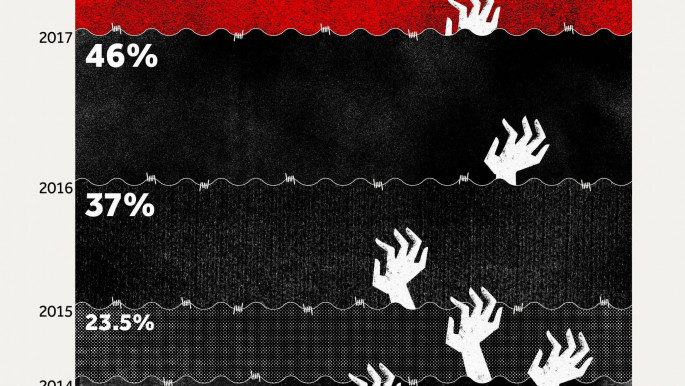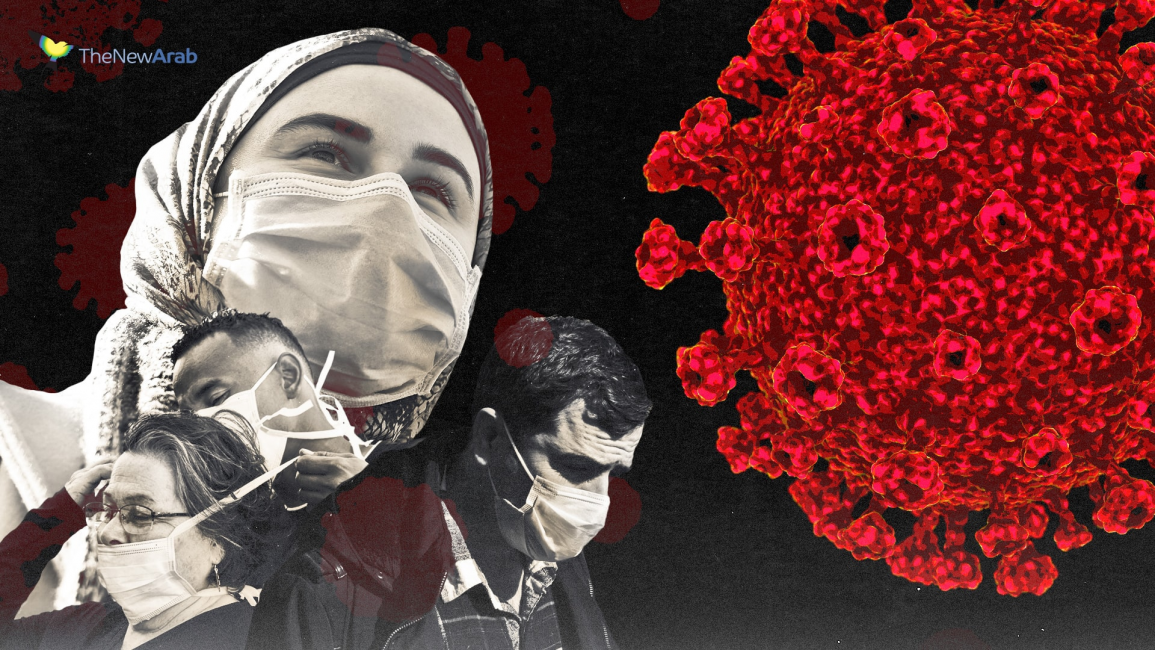The Middle East at war with coronavirus: Top stories from 28 March
Iraqi doctors launch WhatsApp consultations
A group of doctors in Iraq have launched free consultations via WhatsApp, enabling medical professionals to assess symptoms without the risk of coronavirus transmission that comes with hospital visits.
There are also concerns the country's nationwide lockdown will prevent patients from reaching hospitals.
"We had to search for alternatives to provide healthcare," Dr Mohammad al-Husseini told The New Arab's Arabic-language sister site.
"We hope the initiative will spread to a wider scale so we can overcome the dangerous situation this country is in," he added.
Remote diagnosis is not as accurate as in-hospital treatment with testing, the doctor explained.
"This initiative contributed to saving my life. I suffered a stroke years ago and I have to see a doctor every two months, but I could not go due to the lockdown and our lack of finances," 68-year-old Abu Ammar said.
"I offered [the doctor] my case history... and he a new prescription for me that has contributed to the improvement of my health. I thank the doctors who launched this initiative."
Iraq has reported 506 confirmed cases of the Covid-19 respiratory disease caused by the new coronavirus, including 42 fatalities.
Ankara on Saturday halted all inter-city train travel and drastically limited domestic flights in a bid to stop the spread of the novel coronavirus.
 |
| [Click to enlarge] |
Inter-city travel will now be subject to the approval of the Travel Permission Council, linked to the local governor's office.
Opposition lawmakers have called for the Turkish government to impose a "stay-at-home" measure. A full lockdown of the country has been resisted by President Recep Tayyip Erdogan so far, but his government has gradually introduced tougher measures to contain the fast-growing outbreak.
On Friday, Erdogan called for "voluntary" quarantine in which Turkish residents stay at home except for shopping or other basic needs. Citizens over-65 and those with chronic health conditions have already been barred from leaving their homes.
Turkey has reported 5,698 confirmed Covid-19 cases, including 92 fatalities.
Anger as Lebanon rips down protest tents during lockdown
Anti-government protesters have accused Lebanese authorities of using the coronavirus pandemic as an excuse to crackdown on dissent.
Lebanon's anti-sectarian protest movement began in October, but the previously daily demonstrations have withered away amid the outbreak, which makes mass gatherings potentially deadly.
Riot police forcibly evicted a few dozen protesters from their encampments in downtown Beirut on Friday after curfew measures were enhanced.
"They attacked and destroyed every tent," a protester named Hadi told Lebanon's The Daily Star.
"They told us that it was wrong to be living in one tent because of corona, and that because of the curfew... we can't stay there... I don't think this is the real reason – they wanted to remove us before and used corona as an excuse," he said.
A day earlier, the government announced that the nationwide lockdown due to end on Mach 29 would be extended by an additional two weeks and introduced a curfew between 7 p.m. and 5 a.m.
Lebanon has reported 412 confirmed Covid-19 cases, including eight fatalities.
Iran says death toll from virus tops 2,500Iran announced on Saturday that another 139 people had died from the Covid-19 illness, raising the official death toll to 2,517.
The Islamic Republic has been the regional epicentre of the coronavirus pandemic and has witnessed one of the deadliest outbreaks in the world.
Health ministry spokesman Kianoush Jahanpour added that 3,076 more cases had been confirmed in the past 24 hours, bringing the total number of infections to 35,408.
More than 11,000 patients have recovered from the disease and been discharged from hospital, he added.
Tehran has recent imposed strict containment measures after public appeals largely failed to deter hundreds of thousands from visiting family for Nowruz, the Persian New Year holiday.
They include a ban on inter-city travel by road.
Great March of Return protest cancelled over virus fears
 |
| [Click to enlarge] |
Rallies were supposed to be held on Monday, the second anniversary of the "Great March of Return" which prompted weekly protests by Palestinians calling for access to lands lost in 1948.
At least 215 Palestinians were killed over the course of the protests, according to Gaza medical officials. Another 8,000 suffered gunshot wounds.
But the highly contagious novel coronavirus may pose an ever bigger risk to Palestinians in the densely populated strip.
"We call upon our people not to go to the Return encampments on March 30 and to stay home in order to maintain the safety of our people in the face of this lethal pandemic," said Khaled al-Batsh, a senior member of the Islamic Jihad militant group.
Instead, residents should raise Palestinian flags from their rooftops or burn Israeli ones, Batsh suggested.
Palestine has reported 97 confirmed Covid-19 cases, with nine located in Gaza and 88 in the occupied West Bank. One person has died of the disease.
Follow us on Facebook, Twitter and Instagram to stay connected



